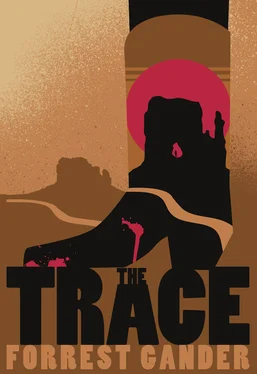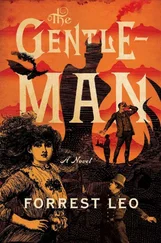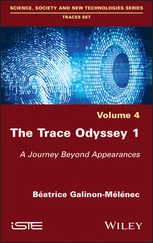Forrest Gander - The Trace
Здесь есть возможность читать онлайн «Forrest Gander - The Trace» весь текст электронной книги совершенно бесплатно (целиком полную версию без сокращений). В некоторых случаях можно слушать аудио, скачать через торрент в формате fb2 и присутствует краткое содержание. Год выпуска: 2014, Издательство: New Directions, Жанр: Современная проза, на английском языке. Описание произведения, (предисловие) а так же отзывы посетителей доступны на портале библиотеки ЛибКат.
- Название:The Trace
- Автор:
- Издательство:New Directions
- Жанр:
- Год:2014
- ISBN:нет данных
- Рейтинг книги:3 / 5. Голосов: 1
-
Избранное:Добавить в избранное
- Отзывы:
-
Ваша оценка:
- 60
- 1
- 2
- 3
- 4
- 5
The Trace: краткое содержание, описание и аннотация
Предлагаем к чтению аннотацию, описание, краткое содержание или предисловие (зависит от того, что написал сам автор книги «The Trace»). Если вы не нашли необходимую информацию о книге — напишите в комментариях, мы постараемся отыскать её.
The Trace — читать онлайн бесплатно полную книгу (весь текст) целиком
Ниже представлен текст книги, разбитый по страницам. Система сохранения места последней прочитанной страницы, позволяет с удобством читать онлайн бесплатно книгу «The Trace», без необходимости каждый раз заново искать на чём Вы остановились. Поставьте закладку, и сможете в любой момент перейти на страницу, на которой закончили чтение.
Интервал:
Закладка:
An image of Hoa in the motel in El Paso flashed in his mind. Pulling on her pants. Those defined dancer’s hamstrings filling them out in back.
And then he was sucked completely into his run and not conscious of thinking about anything until the watch beeped and he glanced at his time. Otherwise, he was his running. His body abducted his mind. His pace had picked up in the fifth and sixth miles until, two blocks from the hotel, he pressed the stop button on his watch and started walking. He took off his headphones. They were soaking wet. He had no memory of the songs he’d heard after the third mile. For the large part of the last three miles, he had existed in a pure present. The songs playing through his headphones were converted into perfect caloric energy. When his body was in tune with his run, anything — a stumble, a song, a little rise forcing him to lean forward — could be metabolized into usable energy. The run became his mechanism for climbing out of himself.
As soon as he entered the air-conditioned hotel, he began to sweat in earnest and by the time he reached his room, he was liquid.
Hoa came out of the bathroom in a white towel, combing her shoulder-length hair.
“You know my mom always told me it wasn’t good for the roots, combing my hair when it’s wet. She told me it would make me go bald.”
“That’s why I don’t comb my hair at all,” Dale said, crouching on the floor to unlace his shoes.
“Yeah, but you’re going bald anyway.” Her back was to him, she was sitting down at the desk. “So you must have done it a lot as a child.”
Dale shook his head. He stripped and went into the bathroom, shaved, and turned on the shower. For a long time, he stood in the cold water, letting it bring down his temperature. Run long enough in the heat and your brain begins to cook. Afterward, he stepped into the room and stood naked with one hand on each lower bedpost like he was preparing to take a whipping, and he leaned there absorbing the downdraft from the ceiling fan. His feet had left wet tracks on the tile floor. Sweat began to pour out of him again.
Hoa, now dressed and sitting up in bed, lifted her face from her book. She got up and went into the bathroom and came out with a dry towel. While he stood naked under the fan, she swabbed the nape of his neck and his shoulders and lower back with the towel. She swiped his inner thighs, bringing the towel down his calves. One and then the other.
“Turn around,” she said.
He turned and she leaned forward to kiss him on the lips. He hadn’t brushed his teeth yet, so his response was hesitant, his lips closed. She wiped the towel against his forehead and he shut his eyes, enjoying the soft cloth as it descended his chest, belly, thighs. Then he felt her finger on him and he opened his eyes. She was tracing a blue vein that stood out from where his torso met his hips on the left side.
“It’s like a pour mark,” she said. She was thinking about glazes.
Marfa Cemetery
“So when we get there, I’ll tell you how Ambrose Bierce died in Marfa,” Dale said, standing behind the red rental car and lifting their two duffel bags into the trunk.
“Why don’t you tell me now?”
She wasn’t into surprises.
He looked at his phone. 8:16 a.m. He ignored her question, stepping back through the wrought-iron gate into the open courtyard of the El Paisano Hotel. The tall fountain burbled above the wheat-colored, ant-riddled grass. He walked to the table where he and Hoa had eaten toast with marmalade and gone through two cups of coffee each. Their plates and silverware were gone, but there was the Morris biography of Ambrose Bierce that he’d left next to his coffee cup. Inside the book were photocopies of his driver’s license, the rental car agreement and both his and Hoa’s passports.
Hoa was sitting in the car with her legs out. He shut the trunk.
“It’ll be more fun to stretch the stories out,” he said, sliding behind the wheel. “Three theories of Bierce’s death. So I’ll tell them to you in the three places we’re visiting in the next three days.”
“More fun for who? You might as well tell me now,” she said, closing the passenger door, reaching for her seatbelt. “Anything could happen.”
* * *
“Isn’t that it?” she asked a few minutes later. They were driving past a small green highway sign for Marfa Cemetery.
He swerved right onto the narrow highway shoulder and let a pickup behind them go by. He pulled a U-turn, drove back thirty yards, and turned into the Marfa cemetery.
“Should be a new part and an old part,” he said, scanning ahead.
The morning clouds had mostly moved on. It was a clear, dry morning, and the sky was blue and giant. A few trees shaded the edges of the cemetery, but most of the terrain was baked red-ocher clay, bearing clumps of desert grass that had been recently weed-whacked. Dale parked at the end of the cemetery’s new section, where the graves were well-kept, and they got out and wandered around, stepping across a low cinderblock retaining wall into the old part, where the names were all Mexican and many of the inscriptions were in Spanish. The sun was sawing at Dale’s forehead. Beyond the north side of the cemetery, brown prairie stretched all the way to a horizon of dioritic mountains.
Dale looked over at Hoa. She had taken off her snap-brim fedora and set it on a low, mold-stained tombstone. With both hands, she was working her hair back into a ponytail, something she did sometimes to soothe herself. Like taking a cigarette break. She slipped the blue bungee from her wrist and pulled it tightly around her ponytail, doubling it and doubling it again to hold her hair away from her neck. Another one of those practiced, graceful moves that charmed Dale. She put the fedora on with the knot of hair inside it.
As they dawdled through the cemetery, Hoa noticed the hodge-podge of markers, as various as the people under them must have been. Wooden and iron crosses, vertical and flat stones, a clay urn mottled with green lichen. The markers were sun-bleached, weather-eaten, and broken, a few reduced to nothing but splinters. Someone had made a cross by nailing a broken chair dowel into an old plank.
“Look,” Hoa called, a little quaver in her voice.
Dale came over.
“It’s only 1932,” he said.
“Not the date. Look at the wood grain.”
“Oh yeah,” Dale said. “In the cement. From the wood forms they used.”
“Concrete.”
“What?”
“Not cement,” Hoa said, her voice steadier. “Cement’s just an ingredient in concrete. Like 10 percent of it.”
“Right,” Dale said. “I know that.”
He was wiping dust and dead grass from a stone. Two plastic flowers poked up from the sand beside it.
Hoa tried reading the inscription. “FAYECO? EL 31 DE DECEMVRE DE 1915 DE 2, is that an 8? DE ED. SUS PADRES.”
“Fayeco,” Dale pronounced. “Died the 31st of December, age of 28.”
He held back the part about the parents. Parents grieving their dead son. She didn’t need to go there.
A mockingbird was singing at them. Hoa wiped sweat from her forehead, then cleaned her sunglasses with the lower edge of her blouse.
Dale went on. “December 1915. This guy was probably wounded in the battle at Ojinaga. Died incarcerated here in Marfa. So one of the theories,” he went on, “is that Bierce is buried here in Marfa in an unmarked grave.”
He took a photograph and slipped the phone back into his pocket. Hoa was walking away toward a stone flush against the ground.
“Everyone on this side is Mexican,” she called.
“Just about.”
“Then why would Ambrose Bierce be over here.”
“Just a possibility. Want to hear how it goes?”
Читать дальшеИнтервал:
Закладка:
Похожие книги на «The Trace»
Представляем Вашему вниманию похожие книги на «The Trace» списком для выбора. Мы отобрали схожую по названию и смыслу литературу в надежде предоставить читателям больше вариантов отыскать новые, интересные, ещё непрочитанные произведения.
Обсуждение, отзывы о книге «The Trace» и просто собственные мнения читателей. Оставьте ваши комментарии, напишите, что Вы думаете о произведении, его смысле или главных героях. Укажите что конкретно понравилось, а что нет, и почему Вы так считаете.












